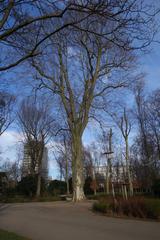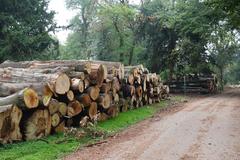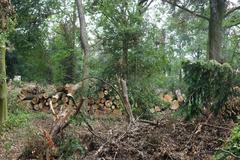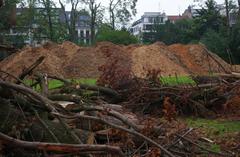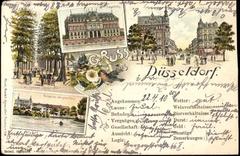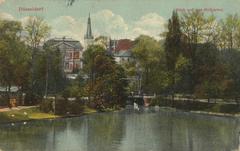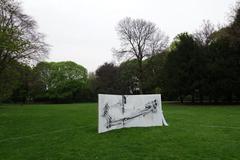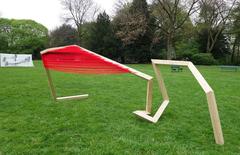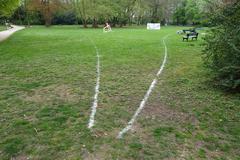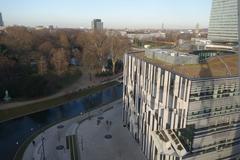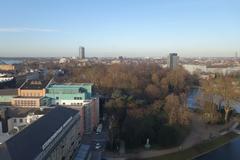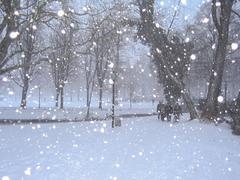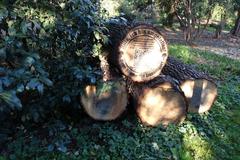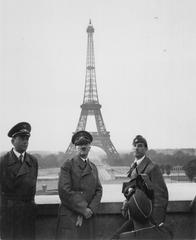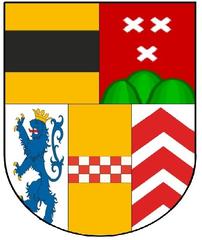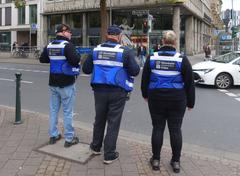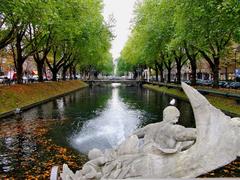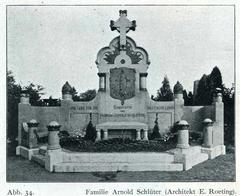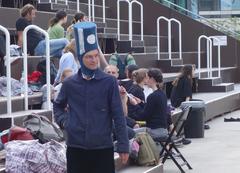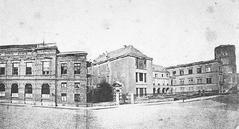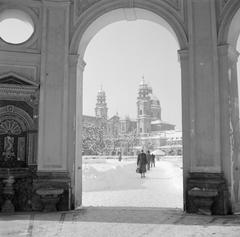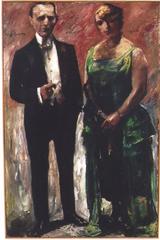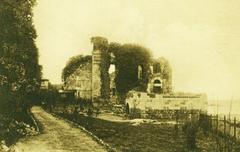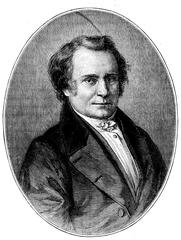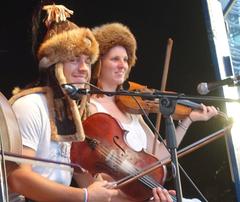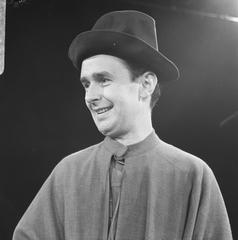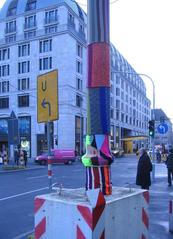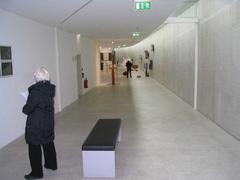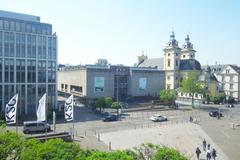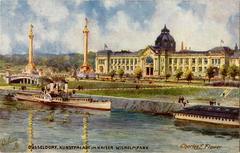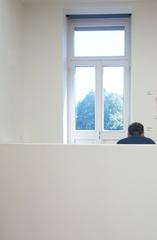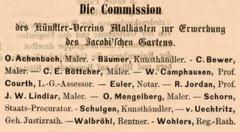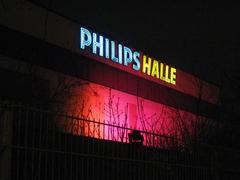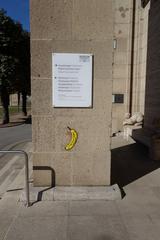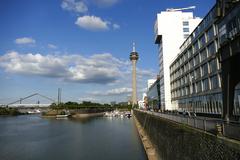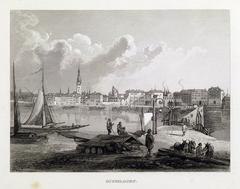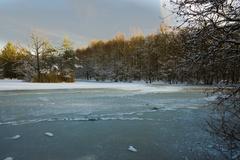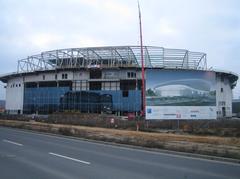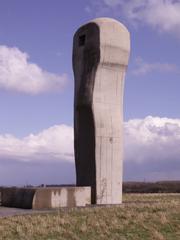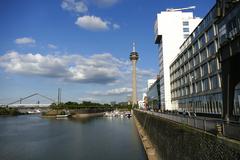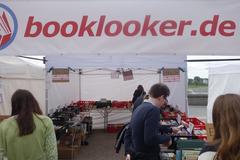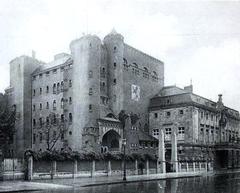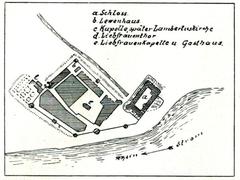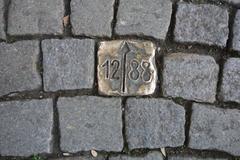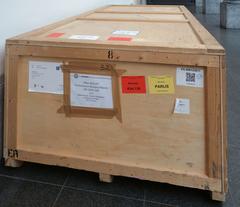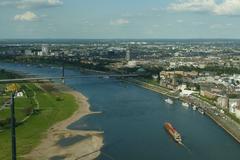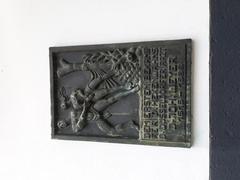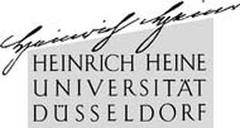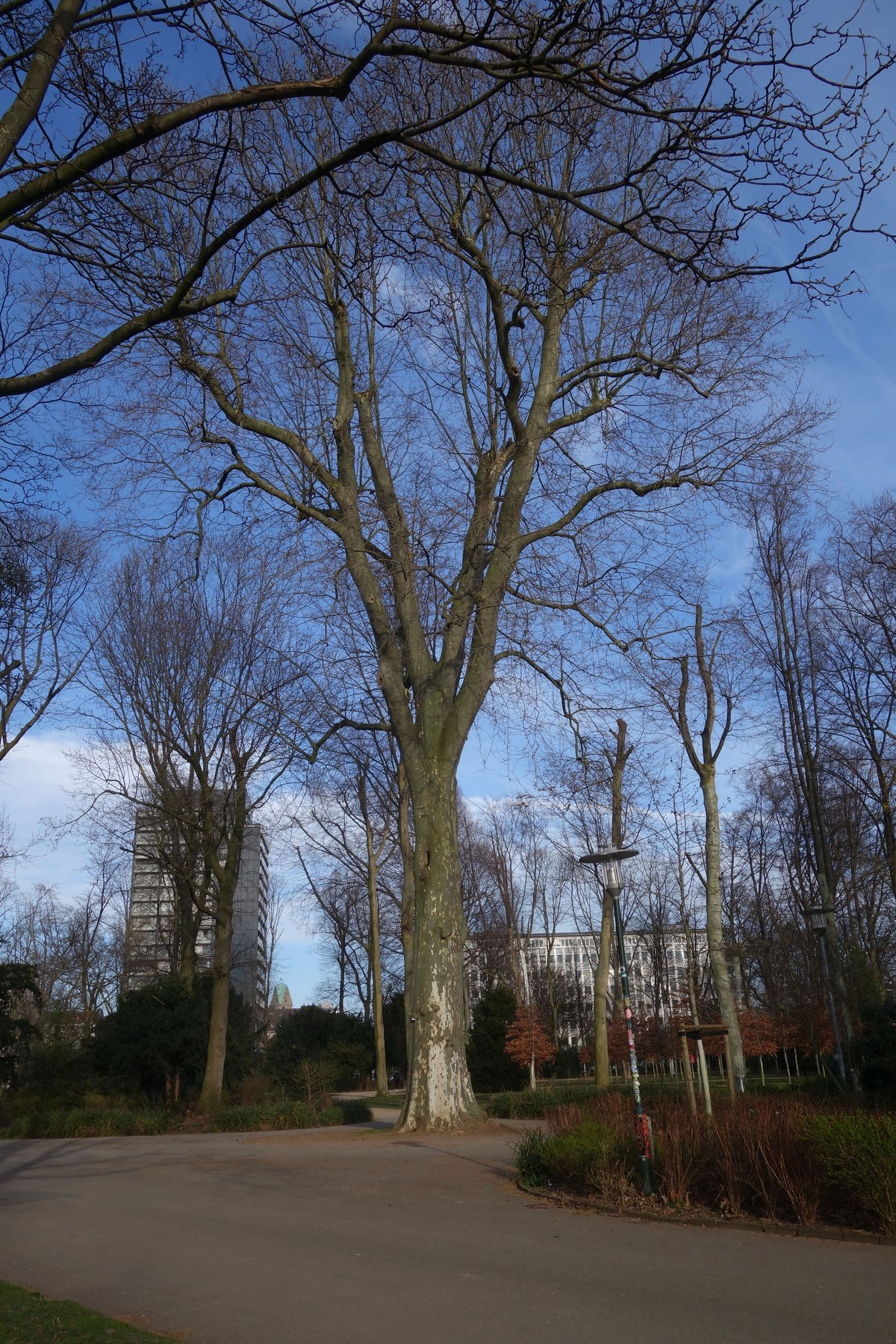
Hofgarten Düsseldorf: Visiting Hours, Tickets, and Historical Sites Guide
Date: 15/06/2025
Introduction
Hofgarten Düsseldorf, Germany’s oldest public park, lies at the heart of the city, seamlessly blending centuries-old history with vibrant urban life. Established in 1769 by Elector Carl Theodor, the park reflects Enlightenment ideals, with its English landscape design by Maximilian Friedrich Weyhe. Today, Hofgarten is cherished not only as a green retreat but as a vital cultural and social meeting point, adorned with historic monuments, artistic sculptures, and notable landmarks like Schloss Jägerhof and the Goethe Museum (Düsseldorf Tourism).
This comprehensive guide details Hofgarten’s history, features, visiting hours, ticket information, accessibility, visitor amenities, and nearby attractions—ensuring you have all the insights needed for a memorable visit.
Historical Background and Cultural Significance
Origins and Early Development
Commissioned in 1769, Hofgarten was designed as both a pleasure garden for the court and a pioneering public green space. Its landscape followed the English garden tradition, emphasizing natural curves, open meadows, and tranquil water features, departing from the more rigid French style. This approach symbolized a new era of accessibility and public engagement in urban planning (Düsseldorf Tourism).
19th Century and Urban Evolution
As Düsseldorf expanded, Hofgarten’s boundaries shifted, integrating new boulevards and public buildings such as the Schauspielhaus and Kunsthalle. The park became a focal point for public gatherings and civic celebrations, further enriched by the addition of monuments honoring figures like Heinrich Heine (Stadt Düsseldorf).
Wartime Damage and Restoration
The devastation of World War II necessitated extensive restoration. Efforts in the postwar years focused on replanting, reconstructing damaged sculptures, and revitalizing the park’s water features, blending historical authenticity with contemporary needs (Düsseldorf Official).
Modern-Day Role
Today, Hofgarten is a dynamic venue for cultural events, art exhibitions, open-air concerts, and festivals. Its proximity to key institutions like the Kunstpalast and Tonhalle cements its role as a cultural and ecological oasis in Düsseldorf’s cityscape (Bundesgartenschau History).
Park Layout, Design, and Key Features
Structure and Entrances
Spanning approximately 27–28 hectares, Hofgarten extends from the Altstadt (Old Town) and Königsallee shopping boulevard to the Rhine embankment. Main entrances include:
- Ratinger Tor: A neoclassical gateway at the northern edge (Mapcarta).
- Königsallee Side: The western boundary, adjacent to Düsseldorf’s luxury shopping street.
- Schadowstraße and Jacobistraße: Eastern and southern access points connecting to commercial and residential zones.
Wide, tree-lined avenues and winding footpaths create an inviting network throughout the park, punctuated by ornamental bridges and scenic ponds.
Notable Landmarks and Artworks
- Schloss Jägerhof: The baroque palace at the park’s north end houses the Goethe Museum, surrounded by formal gardens (Goethe Museum Düsseldorf).
- Heinrich Heine Memorial: Celebrates Düsseldorf’s famous poet.
- Triton Fountain: A striking water feature near the southern entrance (Lonely Planet).
- Hofgärtnerhaus: The former residence of Maximilian Weyhe, now the Theatermuseum Düsseldorf.
- Various Sculptures: Including tributes to Jan Wellem and Peter von Cornelius, as well as contemporary installations.
Natural Elements and Recreation
- Ponds and Waterways: Serene bodies of water attract swans, ducks, and local birdlife (Germany Travel Blog).
- Ancient Trees: Mature plane trees, oaks, and chestnuts create shaded avenues.
- Expansive Lawns: Open meadows are ideal for picnics, sunbathing, and informal gatherings.
- Flowerbeds and Seasonal Blooms: Vibrant displays from spring through autumn.
Visitor Information
Visiting Hours
Hofgarten is open year-round and accessible 24/7, making it a versatile destination for early morning walks, afternoon outings, or evening strolls (visitduesseldorf.de).
Admission and Tickets
Entry is free of charge. No tickets are required for the park itself. However, separate tickets are needed for attractions such as the Goethe Museum inside Schloss Jägerhof (Goethe Museum Düsseldorf). Guided tours or special events may also require advance booking.
Accessibility
- Paths: Paved and mostly flat, suitable for wheelchairs and strollers.
- Entrances: Multiple, with ramps at main points.
- Facilities: Benches are plentiful throughout the park.
Getting There
- Public Transport: Easily reached via Düsseldorf Hauptbahnhof (central station) and nearby tram stops (e.g., lines 701 and 705).
- Cycling: Bike paths are available; rentals can be found citywide.
- Parking: Limited street parking; public transport is recommended due to the central location.
Facilities and Amenities
- Restrooms: Located near major entrances and playgrounds.
- Playgrounds: Modern play areas for children, especially on the southern and eastern edges.
- Refreshments: Small kiosks operate during peak seasons; numerous cafés and restaurants are nearby on Königsallee and in Altstadt.
- Seating: Benches and shaded spots are distributed throughout the park.
Safety and Cleanliness
Hofgarten is well-maintained and patrolled, with well-lit paths for evening safety. Litter bins are provided, and visitors are encouraged to keep the park clean.
Activities and Experiences
Walking, Jogging, and Cycling
The extensive network of paths accommodates walkers, joggers, and cyclists. Early mornings are particularly tranquil.
Picnicking and Family Outings
Open meadows and shaded areas are ideal for picnics. Families can enjoy playgrounds and safe play spaces (thetouristchecklist.com).
Photography and Art
Hofgarten’s blend of nature, historic architecture, and public art offers excellent photography opportunities year-round. Seasonal changes—from cherry blossoms to autumn foliage—provide diverse backdrops.
Yoga, Meditation, and Outdoor Activities
Open lawns and tranquil spots are popular for yoga, meditation, and small group activities, with sessions often organized by local instructors (travelsetu.com).
Guided Historical Tours
Guided tours delve into Hofgarten’s transformation from ducal garden to public park, highlighting its architectural and cultural heritage.
Nearby Attractions
Hofgarten’s central location puts it within walking distance of some of Düsseldorf’s top sites:
- Königsallee: Renowned luxury shopping boulevard (thetouristchecklist.com).
- Altstadt (Old Town): Rich in historic architecture, museums, and nightlife (germanytravel.blog).
- Museum Kunstpalast: Major art museum on the park’s western edge.
- Carlsplatz Market: Lively market offering local produce and delicacies.
- Theatermuseum Düsseldorf: Located in the Hofgärtnerhaus, celebrating the city’s theatrical history.
Frequently Asked Questions (FAQ)
Q: What are Hofgarten Düsseldorf’s visiting hours?
A: The park is open 24 hours a day, year-round.
Q: Is there an admission fee or ticket required?
A: No, entry to Hofgarten is free. Separate tickets are required for attractions like the Goethe Museum.
Q: Are guided tours available?
A: Yes, guided historical tours and special events are sometimes available. Check local listings or the official tourism website.
Q: Is the park wheelchair accessible?
A: Yes, most paths are wheelchair-friendly.
Q: Are pets allowed?
A: Yes, dogs are welcome but must be kept on a leash.
Practical Tips for a Memorable Visit
- Best Time to Visit: Late spring through early autumn offers vibrant scenery and frequent events.
- What to Bring: Comfortable shoes, camera, picnic supplies, and weather-appropriate clothing.
- Weather: Düsseldorf’s climate is temperate; bring an umbrella or jacket in case of rain.
- Combine with Other Attractions: Make the most of your visit by exploring nearby museums, shopping streets, and the Rhine embankment.
Visuals and Media Recommendations
Enhance your visit by exploring virtual tours and photo galleries on official sites (visitduesseldorf.de). Suggested image captions and alt text:
- “Schloss Jägerhof in Hofgarten Düsseldorf, a historic Rococo palace”
- “Triton Fountain, a notable water feature at Hofgarten Düsseldorf”
- “Ancient trees and winding paths in Düsseldorf’s historic Hofgarten”
Summary and Recommendations
Hofgarten Düsseldorf is more than just a city park—it’s a living tapestry of history, art, and nature. With free entry, all-hours access, and a diverse array of attractions, it is an essential stop for anyone exploring Düsseldorf. Whether you seek a tranquil escape, a cultural journey, or a family adventure, Hofgarten offers something for everyone.
For more travel tips, event updates, and exclusive content, download the Audiala app or browse our related articles on Düsseldorf’s top sights and cultural events.
References
- Hofgarten Düsseldorf Visiting Hours, Tickets, and Historical Insights, 2025 (Düsseldorf Tourism)
- Stadt Düsseldorf, Hofgarten Park Information, 2025 (Stadt Düsseldorf)
- Bundesgartenschau History, 2025 (Bundesgartenschau History)
- Goethe Museum Düsseldorf, 2025 (Goethe Museum Düsseldorf)
- ADAC Maps, Hofgarten Düsseldorf, 2025 (ADAC Maps)
- Mapcarta, Hofgarten Düsseldorf Map and Features, 2025 (Mapcarta)
- Germany Travel Blog, Things to Do in Düsseldorf, 2025 (Germany Travel Blog)
- PlanetWare, Tourist Attractions Düsseldorf, 2025 (PlanetWare)
- Wikimedia Commons, Maps of Hofgarten Düsseldorf, 2025 (Wikimedia Commons: Maps of Hofgarten Düsseldorf)
